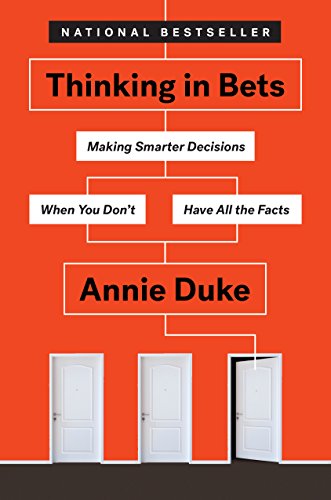The Irrational Investor
An avid reader. An enthusiastic student. PhD. Cleared CFA Level III. A rational optimist,mostly. An uncategorized investor. On the journey to financial freedom.
Book Recommendations:
Recommended by The Irrational Investor
“A thread on my notes and highlights from the book "Letters from a Stoic" by Seneca. Written in around 65 AD, the book is a literary masterpiece, and has had a great influence on me. I try to re-read it at least once a year. (1/n)” (from X)
by Seneca, Coralie Bickford-Smith, Robin Campbell·You?
by Seneca, Coralie Bickford-Smith, Robin Campbell·You?
A new series of beautiful hardcover nonfiction classics, with covers designed by Coralie Bickford-Smith World-changing ideas meet eye-catching design: the best titles of the extraordinarily successful Great Ideas series are now packaged in Coralie Bickford-Smith’s distinctive, award-winning covers. Whether on a well-curated shelf or in your back pocket, these timeless works of philosophical, political, and psychological thought are absolute must-haves for book collectors as well as design enthusiasts. A philosophy that saw self-possession as the key to an existence lived "in accordance with nature," Stoicism called for the restraint of animal instincts and the severing of emotional ties. These beliefs were formulated by the Athenian followers of Zeno in the fourth century BC, but it was in Seneca that the Stoics found their most eloquent advocate. Stoicism, as expressed in the Letters, helped ease pagan Rome's transition to Christianity, for it upholds upright ethical ideals and extols virtuous living, as well as expressing disgust for the harsh treatment of slaves and the inhumane slaughter witnessed in the Roman arenas. Seneca's major contribution to a seemingly unsympathetic creed was to transform it into a powerfully moving and inspiring declaration of the dignity of the individual mind. Robin Campbell's distinguished translation captures Seneca's humour and concise, memorable aphorisms and his introduction discusses the tensions between Seneca's philosophy and his turbulent career as adviser to the tyrannical emperor Nero. For more than sixty-five years, Penguin has been the leading publisher of classic literature in the English-speaking world. With more than 1,500 titles, Penguin Classics represents a global bookshelf of the best works throughout history and across genres and disciplines. Readers trust the series to provide authoritative texts enhanced by introductions and notes by distinguished scholars and contemporary authors, as well as up-to-date translations by award-winning translators.
Recommended by The Irrational Investor
“@AnnieDuke A lot of Howard's latest memo is attributed to @AnnieDuke book, Thinking in Bets. I reviewed this book last year and would say it's a must read for anyone interested in trading and investing. (11/11) https://t.co/GnaSaAa7yO” (from X)
Wall Street Journal bestseller! Poker champion turned business consultant Annie Duke teaches you how to get comfortable with uncertainty and make better decisions as a result. In Super Bowl XLIX, Seahawks coach Pete Carroll made one of the most controversial calls in football history: With 26 seconds remaining, and trailing by four at the Patriots' one-yard line, he called for a pass instead of a hand off to his star running back. The pass was intercepted and the Seahawks lost. Critics called it the dumbest play in history. But was the call really that bad? Or did Carroll actually make a great move that was ruined by bad luck? Even the best decision doesn't yield the best outcome every time. There's always an element of luck that you can't control, and there is always information that is hidden from view. So the key to long-term success (and avoiding worrying yourself to death) is to think in bets: How sure am I? What are the possible ways things could turn out? What decision has the highest odds of success? Did I land in the unlucky 10% on the strategy that works 90% of the time? Or is my success attributable to dumb luck rather than great decision making? Annie Duke, a former World Series of Poker champion turned business consultant, draws on examples from business, sports, politics, and (of course) poker to share tools anyone can use to embrace uncertainty and make better decisions. For most people, it's difficult to say "I'm not sure" in a world that values and, even, rewards the appearance of certainty. But professional poker players are comfortable with the fact that great decisions don't always lead to great outcomes and bad decisions don't always lead to bad outcomes. By shifting your thinking from a need for certainty to a goal of accurately assessing what you know and what you don't, you'll be less vulnerable to reactive emotions, knee-jerk biases, and destructive habits in your decision making. You'll become more confident, calm, compassionate and successful in the long run.

